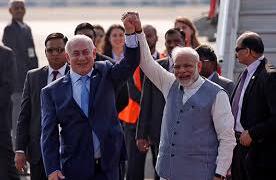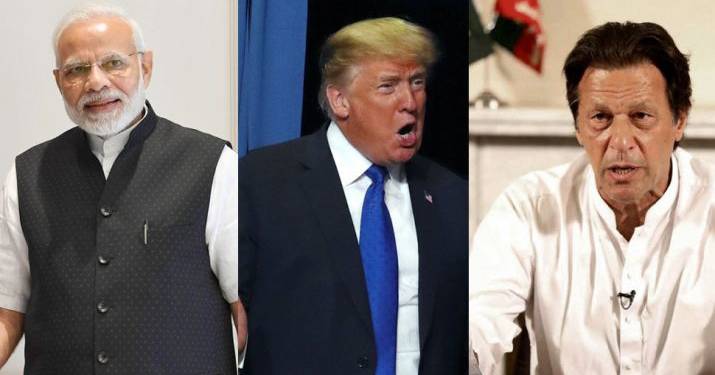In a major development that changed the geopolitical dynamics in a big way, President of the United States, Donald Trump cancelled peace negotiations with Taliban. The peace dialogue was cancelled after an attack in Kabul, Afghanistan that resulted in the death of a US soldier and 11 other people. Taliban had claimed responsibility for this attack which gave rise to apprehensions about the Taliban could go on an absolute rampage once the US actually exited Afghanistan. The practical sustainability of a peace deal with an organisation like the Taliban was anyway under deep suspicion anyway. It was difficult to fathom how an organisation like the Taliban which remains dedicated to its nefarious goals could have been trusted with honouring the terms of a peace deal. Finally, in a welcome move, President Donald Trump took to Twitter and made it clear that peace talks with Taliban had been called off. In a long tweet, he came down heavily on the Taliban for taking innocent lives only in order to seemingly strengthen their bargaining position. Donald Trump, however, made it clear that he cancelled peace talks after Taliban claimed responsibility for the brutal terror attack and also the fact that this attack didn’t lend greater bargaining power to Taliban. The tenor of his tweet suggested that we might see a dramatic reversal in the US policy on tackling Taliban.
….an attack in Kabul that killed one of our great great soldiers, and 11 other people. I immediately cancelled the meeting and called off peace negotiations. What kind of people would kill so many in order to seemingly strengthen their bargaining position? They didn’t, they….
— Donald J. Trump (@realDonaldTrump) September 7, 2019
This move by President Trump has obviously come as a surprise shock for Pakistan which was till now flaunting the recent developments in Afghanistan as a diplomatic victory strengthening its geopolitical position. It is clear that Pakistan has emerged as the biggest loser after cancellation of peace talks. India, on the other hand, stands to gain big out of the cancellation of US-Taliban dialogue. Trump’s election campaign rode on the idea of bringing back American troops from Afghanistan, which would have proved disastrous for India in the region as Pakistan would begin to focus all its energies on Kashmir and injecting terror into India.
India entertained strong and legitimate concerns about the US-Taliban dialogue. It is an open secret that Pakistan Army and ISI shared deep strategic ties with Taliban. The fact that Pakistan funded and provided safe havens to Taliban is the reason why the US has been unable to defeat the Taliban militarily. Once the US forces exited Afghanistan, Taliban would have enjoyed a free run and would have also given a huge leverage to Pakistan for aggressively pursuing its geopolitical goals. A Pakistani politician had already gone on to draw a parallel between Afghanistan and Kashmir. Though Taliban rebuked Pakistan over this statement, however one could not have been sure as to how long Taliban would have distanced itself from Kashmir. Out of Taliban’s pursuit of establishing a Sharia, Pakistan could have at least theoretically used the Taliban to pursue its nefarious Kashmir deisgns. Moreover, with Pakistan-Taliban nexus enjoying a free run in Afghanistan and establishing itself firmly without any Pakistani support, Pakistan would have been able to monomaniacally pursue its nefarious Kashmir designs. However, India no longer needs to be concerned about any such eventualities.
Pakistan firmly believed that it had succeeded after following the strategy of supporting the non-state actors in a proxxy war in Afghanistan for decades, had finally translated into a big victory as the Afghanistan government was successfully sidelined and Pakistan had emerged as an effective mediator between Taliban and the US. The fact that Afghanistan government was sidelined aggravated the legitimate and undeniable concerns about the Taliban getting a free run once the US exited from Afghanistan. In such a situation, Taliban, which directly or indirectly controls 60-70 per cent of Afghanistan’s territory, would have become all powerful by practically destroying the democratic set up in the country. Afghanistan would have been compelled to face Taliban’s excesses for several more decades. India’s interests in Afghanistan would have been a major casualty of Taliban becoming the dominant political force in Afghanistan. After the Taliban was overthrown from large parts of Afghanistan, India’s goodwill initiatives and help in rebuilding essential infrastructure in Afghanistan including the Parliament in Kabul, an electricity transmission line, rebuilding of a High school, cricket stadium in Kandahar, and others, had helped in solidifying the ties between the two countries. However, India’s efforts in rebuilding infrastructure would have been nullified with Taliban taking over Afghanistan if the US forces had exited the country.
For years, Pakistan pursued its nefarious designs in Kashmir and Afghanistan. It has injected ‘Pakistani’ Taliban into Afghanistan to fight US soldiers in the same way that it infiltrates jihadi terrorism into Kashmir. However, Kashmir has already slipped out of Pakistan’s hands and now India has made it clear that bilateral talks would only be with reference to the Pakistan occupied Kashmir. Even as Pakistan battles disappointment following a deep economic crisis and widespread international support for India over abrogation of Article 370, thereby, scrapping the special status of Jammu & Kashmir, Afghanistan has slipped out of its hands too.
The geopolitical situation has suddenly turned adverse for Pakistan. The US might have been influenced in its decision to cancel peace talks with Taliban after India’s move on Kashmir. It must be noted that Pakistan is already facing heat on the Kashmir front as Pakistan occupied Kashmir (PoK) has become the centre of attention. With an impending economic breakdown coupled with repeated financial aid cuts from the US, Pakistan cannot be expected to fight its geopolitical goals on both the Kashmir and Afghanistan fronts simultaneously. Therefore, India might have ended up helping the US indirectly even without sending in troops into Afghanistan. For several years, Pakistan followed the strategy of actively supporting terrorism and even misusing US aid towards that end. Now, with greater pressure on the Kashmir front, Pakistan cannot really afford to support Taliban and continue blackmailing the US. Now, as the Taliban-Pakistan nexus gets watered down, Pakistan should no longer be seen as an ‘indispensable player’ in the Afghanistan issue.
It is only time before Pakistan gets compelled into tending to its economic woes. It would no longer have the luxury of pursuing its geopolitical goals in Kashmir and Afghanistan. This becomes that much more probable because both the fronts have already become a lost cause for Pakistan. Though it may sound slightly far-fetched but with this development, India’s aim to reclaim PoK and Gilgit Batistan has turned far more vivid. With Pakistan’s agenda having been debilitated in the face of repeated setbacks, India has the option of reclaiming its own territory in a much more vociferous and effective manner. This development has clearly put India in the driver’s seat when it comes to its relations with Pakistan.




























